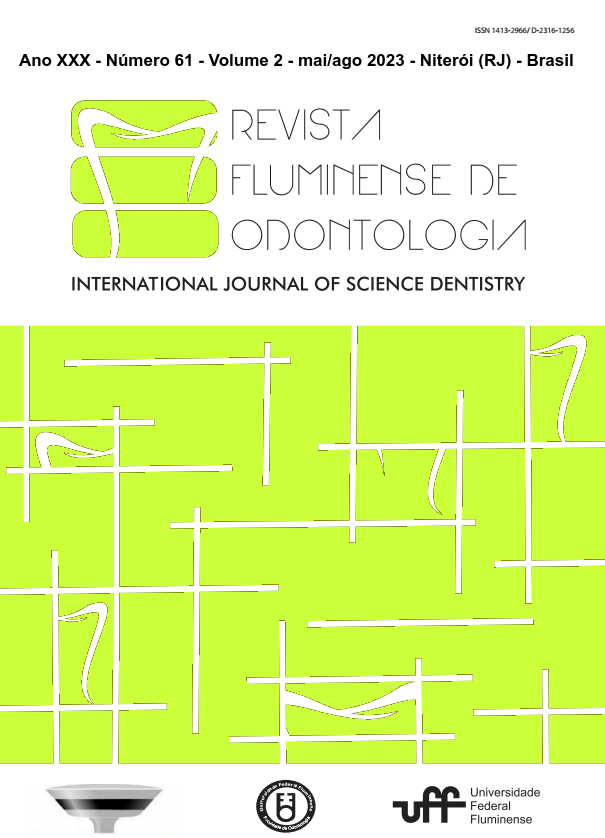USO DE TERAPIA MEDICAMENTOSA COMO COADJUVANTE NA ESTABILIZAÇÃO DA DOR EM PACIENTE COM DISFUNÇÃO TEMPOROMANDIBULAR
DOI:
https://doi.org/10.22409/ijosd.v2i61.56262Resumo
A dor é a queixa principal dos pacientes com disfunção temporomandibular – DTM- e seu controle deve ter prioridade absoluta no tratamento das DTM. A intervenção farmacológica tem sido utilizada por muitos anos. A escolha de um medicamento para o alívio da dor está diretamente relacionada ao estágio e a intensidade relatada pelo paciente, determinando que classes de drogas são eficazes, o período de utilização e efeitos colaterais. As principais classes medicamentosas utilizadas incluem: analgésicos, relaxantes musculares, anti-inflamatórios não esteroidais (AINES), antidepressivos, ansiolíticos, anticonvulsivantes, corticosteroides. O objetivo desta revisão é de abordar os principais agentes farmacológicos utilizados como coadjuvantes no tratamento de pacientes com sintomatologia dolorosa decorrente da DTM, além de analisar o raciocínio farmacológico envolvido na prescrição de cada classe de fármaco em cada tipo dor. Artigos entre 1955 e 2021, foram selecionados através das principais bases de dados como BV Salud, Scielo e Pubmed. Foram incluídos na lista de elegibilidade, artigos relacionados ao tema terapia medicamentosa no controle de dor em pacientes com DTM, dando ênfase às classes medicamentosas anteriormente mencionadas. Artigos que não possuíam texto completo ou o resumo não se referia diretamente ao tema foram excluídos. Em síntese, essa análise serve como forma de agregar conhecimento do ponto de vista teórico e auxiliar o prescritor na escolha do melhor fármaco para cada paciente, levando em consideração o tipo, duração e intensidade de cada caso, para que posteriormente, haja uma tratativa definitiva do caso.
Palavras-chave: Síndrome da Disfunção da Articulação Temporomandibular,
conduta do tratamento medicamentoso, dor facial.


